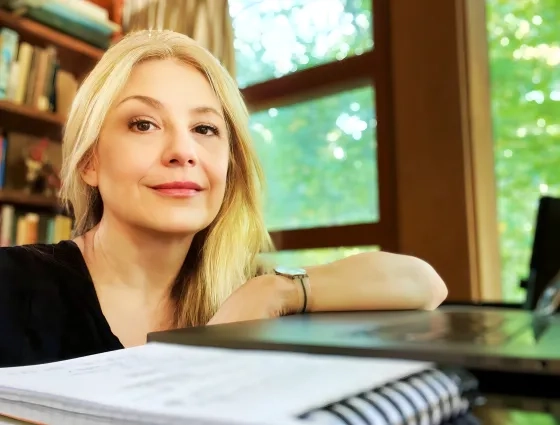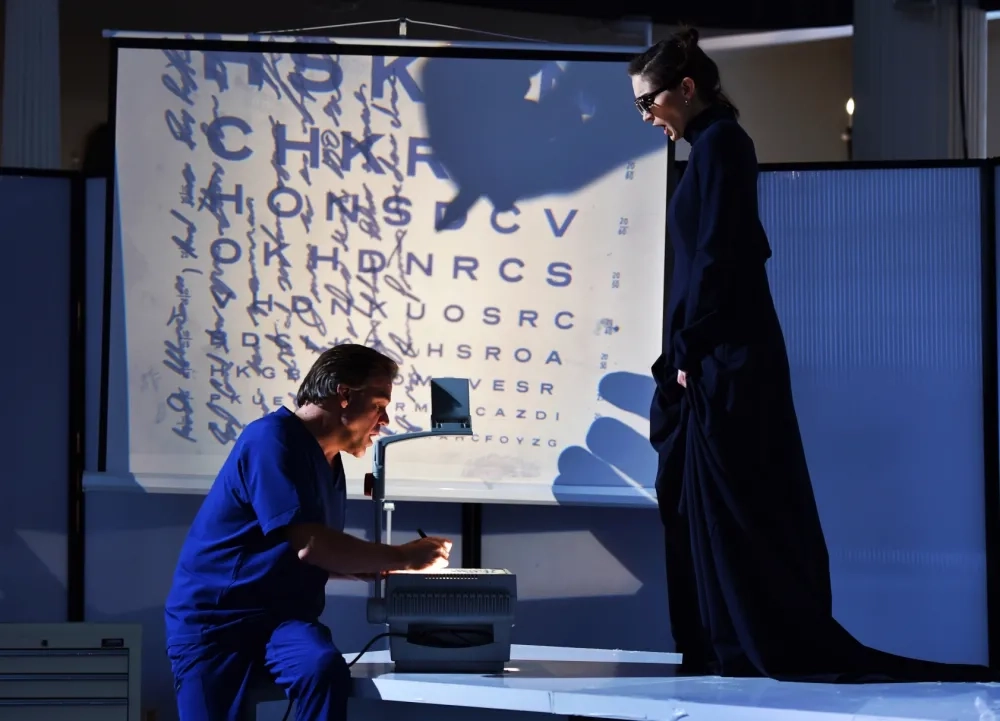Laura Schwendinger, SFCM Student and Teacher, Wins Academy of Arts & Letters Prize
News StorySchwendinger's opera 'Artemisia,' co-written with librettist Ginger Strand, is about the 17th-century painter Artemisia Gentileschi.
One former SFCM student—and teacher—is adding an impressive accolade to an already impressive career.
Laura Schwendinger's opera Artemisia was recently named the winner of the American Academy of Arts and Letters’ 2023 Charles Ives Opera Award, along with librettist Ginger Strand. The award, and its $50,000 in prize money, was decided on by a panel of judges including rarified composers like John Harbison (chair), Anthony Davis, Tania León, Tobias Picker, and Shulamit Ran.
"What's the most important for me is that this is really an opera of a famous female artist that was ignored for many years," Schwendinger said of the work. "Now she's really hot again, you know, all these people are doing major exhibitions about her, but she should never have been forgotten. So this is an opera about a famous woman artist written by two women: Giving her that voice was important to us."
Schwendinger applied to SFCM as a flutist, but iconic composer John Adams, then teaching at SFCM, encouraged her to apply to the composition program as well, having such faith in her potential, that in her words, he "dumped her in the graduate composition program as a freshman." (She also studied voice and sang in the Conservatory choir.)
Schwendinger transferred away from SFCM after a year, but returned to teach in 1998, establishing the composition program in what was then known as the preparatory division. "I would pretty much teach all Saturday," Schwendinger recalled. "I would get there at eight in the morning and teach three or four classes, plus private lessons."
Schwendinger began work on Artemisia in 2015. The titular painter has passed into the Italian art canon, but for much of her life was better known for winning a landmark trial against her rapist. Strand worked to craft the libretto from much of Gentileschi's letters regarding the trial.
"Ginger and I have known each for a long time," Schwendinger explained. "She was in town [Schwendinger is Chair of Composition at University of Wisconsin Madison] to give a lecture for the literature folks, and we had lunch, where I said, you know, 'I've become really fascinated by women artists recently,, especially Artemisia Gentileschi, do you know anything about her?' And Ginger went, I don't want to say crazy, but she got very excited about it because she had been a fan for a very, very long time, too. And as we sat there, I said, I think that her life was so dramatic and would make a great opera. She agreed and I said, 'Well, would you ever be interested in writing a libretto?' And this was our first opera, so to win this award for our first work …"
Schwendinger, who also has the impressive honor of being the first composer to win the American Academy in Berlin's Berlin Prize, offers the following advice to students looking to follow in her footsteps. "I always tell students not to be too focused on their careers. Make work that you like, make work that speaks to you, make work that is meaningful to you and allows you to express yourself. And then people will find it."
By way of illustration, she points to a rejection letter she once received from the Barlow Foundation, who turned her down for a grant. In their letter, the Foundation wrote, "the judges also wish to give special commendation to the following composers whose works were outstanding but could not be funded." Alongside Schwendinger and a list of other who's-who composers was her former teacher John Adams. "So I have this framed in my office," she laughs, "for when students have a bad day. I'll pull this out just to show them that John Adams was turned down for the same thing that I was."
Learn more about studying composition at SFCM.

